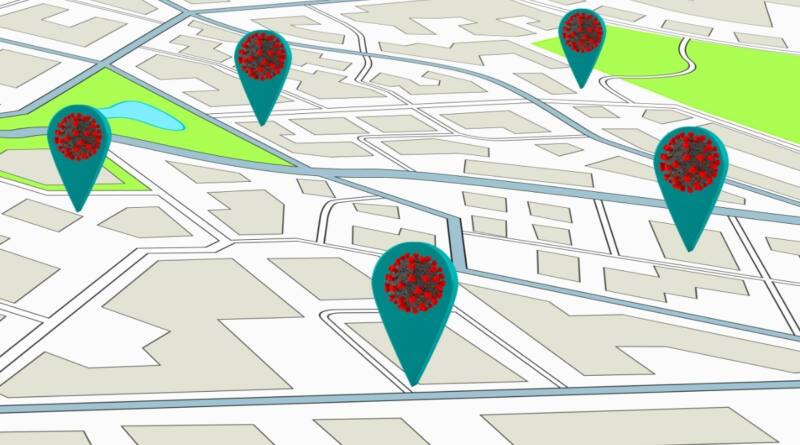Contagion, COVID, And Communications: Know It All Now
A retrospective of the Corona Times and the fear of a new wave
“Soon after her return from a business trip to Hong Kong, Beth Emhoff dies from the flu or some other type of infection. Her young son died later the same day. Her husband, Mitch, however, seems immune. Thus begins the spread of a deadly infection. For doctors and administrators at the U.S. Centres for Disease Control, several days pass before anyone realises the extent or gravity of this new infection. They must first identify the type of virus in question and then find a means of combating it, a process that will likely take several months. As the contagion spreads to millions of people worldwide, societal order begins to break down as people panic.”
If the excerpt above sounds familiar, it isn’t because it is the story of the COVID-19 nightmare that we have all been living for the past couple of years. It is a summary of the plot of a 2011 Steven Soderbergh movie, Contagion, starring Matt Damon, Marion Cotillard, Kate Winselt, Gwyneth Paltrow, Lawrence Fishburne, and Jude Law. The similarities, however, are startling. “In a flashback to the spillover event, a bulldozer from Emhoff’s company clears a rainforest in China, disturbing bats. A bat seeks shelter on a pig farm and infects a pig by dropping a contaminated piece of banana. The pig is then slaughtered and prepared by a chef in a Macau casino, who, without washing his hands, transmits the virus to Beth via a handshake.”
To say that the world as we knew it has literally turned on its head since November 2019 wouldn’t be too much of an exaggeration, especially if you were to transport yourself into the future and look back at the years’ that we have all been living through recently. The rapid spread of an invisible foe has left a trail of death and destruction in its wake. Global, regional, and domestic trade and commerce were slowing down to a glacial pace as country after country chose to hunker down, close their borders, and restrict the movement of their own people in the hope of reducing transmissions. The immense pressure on establishment structures to cope with growing food, energy, and supply chain shortages and national healthcare systems being overwhelmed as countries tried, and in most cases failed, to keep up with unimaginable patient volumes. Chaos has reigned supreme. And, through this period, first imperceptibly and then, almost intentionally, the world order has changed as countries and regions have chosen to look inward and prioritise the needs of their own people over others, re-shore and nearshore critical global supply chains, and stand up and count those that have stood beside them in their deepest times of distress.
So, what has been the role of communications through all this, and what does it mean for the industry as a whole going forward? Well, here are a couple of thoughts for you to consider:
- Communications have been central to managing almost all aspects of this pandemic. From the burdensome task of the WHO, CDC and country leaders having to tell people that the virus was upon us and that it was prudent to hunker down in the face of the period of upcoming uncertainty; to people turning to instant messaging platforms and other forms of social media to search for and notify others of the need for blood, oxygen, medicines and hospital beds; to governments creating and rolling out apps that would allow us to register for critical vaccines, and also allowed them to ‘track and trace’ people who were possibly spreaders themselves or had recently attended allegedly super-spreader events; and, some of the world’s leading healthcare institutions and leading global academic medical colleges creating and socializing content via the internet on global protocols and best practices in combating this disease and treating patients at home. Governments will continue to rely on communications to calibrate the dropping of our national and individual safeguards and then, perhaps, remind us every year that there is an inoculation that needs to be taken as the pandemic hopefully recedes and gives way to a series of regional, country, and later community-specific hotspots.
- Communications have been the lifeblood that has kept us afloat. If asked to name three industries that have proven their credentials and value to society beyond doubt over the past two and a half years, there are many who will no doubt say, ‘e-commerce, electronic communications platforms (Zoom, MS Teams, Webex, BlueJeans), and OTT’. While I admit that the leading e-commerce platforms and their global supply chains have allowed people to continue to have food on their tables, toiletries in their bathrooms, and the luxuries that they choose to enjoy in their homes, I believe that e-commerce, seen in isolation, would need to yield its pride of place to the increasingly omnipotent power of digital commerce, which is increasingly central to multiple facets of our daily lives. Equally, there is no denying the significant contribution of online communication platforms like Zoom, MS Teams, Webex, BlueJeans, and Moodle and the role that they have played in allowing us to continue to carry on with our professional and personal lives at work or at school without having to ever travel to meet with our colleagues, peers, clients, teachers, or would-be customers. And yes, OTT and other Internet-based entertainment and communications platforms have kept us abreast of the latest developments across matters of global and national interest, the lives of our favourite actors, and the evolution of countless stories across soap operas, movies, and quiz shows. I, for one, do not see all of these developments or the benefits they have provided melting away as soon as we all start to look at the pandemic in our rearview mirrors.
- Communications have collapsed in time and distance. If the pandemic has been devastating on co-located communities, it has also been heart-wrenchingly cruel for those of us, like me, who, on account of their personal or professional choices, have found themselves living overseas, more often than not, far away from their families. WhatsApp, Messenger, and other internet-based communications platforms have been invaluable and hugely empowering for people who have desperately tried to stay abreast of the wellbeing of their loved ones living in another country during these times. Gone are the days when you needed to stand in long lines to make an international call or wait till a particular hour when the call rates were lower. Today, you can call as often as you like, whenever you like, on video or audio, and even go so far as to order food online for your children in Paris while you are in the United States, and even track the progress of the deliveryman dropping off the parcel of food in real-time at no extra cost. We cannot overstate the power and liberation we feel when we can do something so fundamental to our lives with just a few clicks on our phones. Equally, countless experiences such as these have removed all doubt around the power and omniscience of digital platforms and media, and more and more governments, companies, news organisations, and nonprofit foundations will embrace the concept of data being the new oil. Shouldn’t you?
- From the point of view of a lifelong student of communications, the intervening period between November 2019 and March 2022 has taught us many life lessons. Primary among these is the fact that life—and communications—don’t stop in the face of economic crises, wars, or a global pandemic. If anything, they intensify. You need to find ways to drink from the firehose, adapt your perspectives, adopt new habits and a plethora of tools, and continue doing what you do best. And, while communications is in many ways the lifeblood that keeps things moving, a lot of benefits that have accrued from effective communications to the global economy and people at large haven’t been the work-product of a body of outstanding communications professionals with job titles that clearly identify them as communications, crisis, or PR managers sitting in a corner office. In many cases, the solutions have emerged organically out of good old common sense, subject matter expertise, the lack of any other option, or a combination of all of these, and someone who had the vision and foresight to piece this all together. Therefore, it is critical today, perhaps more than ever before, to approach the discipline of communications with open eyes and a broad appreciation of the various factors at work. And to understand and appreciate that our role as professionals is often closer to that of effective ‘play makers’ than players ourselves. Others can appropriate our skills in our profession. We are in a profession where we need to harness the wealth of knowledge and resources we see around us and use them to advance our goals or the goals of our clients.
- From a global practitioner’s point of view, there are few things that create greater opportunities for consulting firms than fear and doubt. The fact that governments around the world have created a series of new tariff and non-tariff barriers to protect their economies and their people from the vagaries of the external world, are urging corporations to re-shore or near-shore their operations to mitigate supply chain risk and create new jobs, and are willing to enter into a flurry of bilateral agreements or initiate significant policy changes to cement new relationships or jumpstart domestic economic growth can only augur well for the global communications and public affairs industry. The coming decade will also see significant investments going into areas like healthcare, insurance, education, infrastructure, manufacturing, supply chain strengthening, and digital commerce as the global economy tries to learn from its mistakes and be better prepared for the eventuality of the world facing another horror like COVID-19.
As global communications professionals, we can choose to look upon the experiences of the COVID-19 pandemic in two ways: feeling sorry for ourselves and bemoaning the loss of several productive years of our lives in the short term, or learning from our experiences and finding niches where it makes sense to play the long game and sufficiently differentiate ourselves from others. I choose to do the latter.
Sukanti Ghosh,
Senior Vice President and Co-Lead, South Asia Practice





A lot of these “vitamins” actually come hidden within other foods like fruit juice concentrate (which isn’t really a vitamin at all), so it makes sense why our bodies need small quantities each day: just enough to keep things running smoothly without causing any harm.
As people age, their bodies change and they may require different types of care. It is important for seniors to maintain good health by staying up-to-date on their vaccinations and seeing a doctor regularly.
As people age, their bodies change and they may require different types of care. It is important for seniors to maintain good health by staying up-to-date on their vaccinations and seeing a doctor regularly.
Very interesting details you have observed, thankyou for putting up. “Ignorance, the root and the stem of every evil.” by Plato.
When I originally commented I clicked the -Notify me when new comments are added- checkbox and now each time a comment is added I get four emails with the same comment. Is there any way you can remove me from that service? Thanks!
Normally I don’t read post on blogs, but I wish to say that this write-up very forced me to try and do so! Your writing style has been amazed me. Thanks, very nice post.
I like this website very much, Its a real nice berth to read and obtain info .
I see something genuinely special in this site.
I am continuously invstigating online for tips that can aid me. Thx!
Great awesome issues here. I?¦m very satisfied to peer your post. Thank you so much and i am having a look ahead to contact you. Will you kindly drop me a mail?
Saved as a favorite, I really like your blog!
I cling on to listening to the news lecture about receiving free online grant applications so I have been looking around for the best site to get one. Could you tell me please, where could i find some?
Your writing is like a breath of fresh air, invigorating and rejuvenating. We’re proud followers from Asheville!
The commitment to high quality content really shows. I’m always excited to read The work.